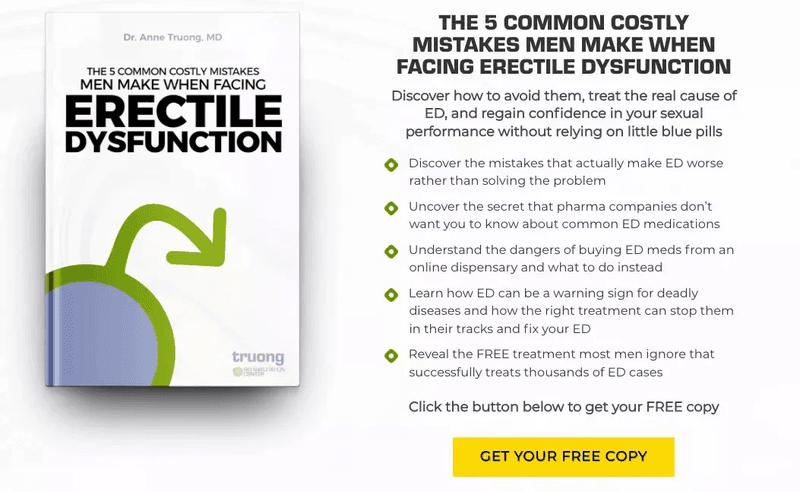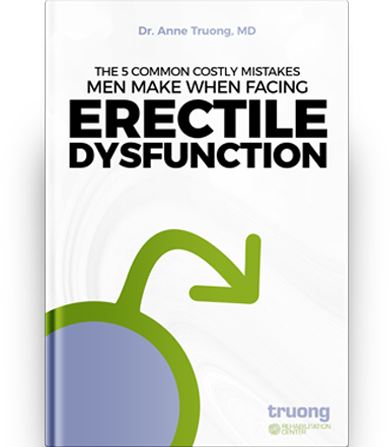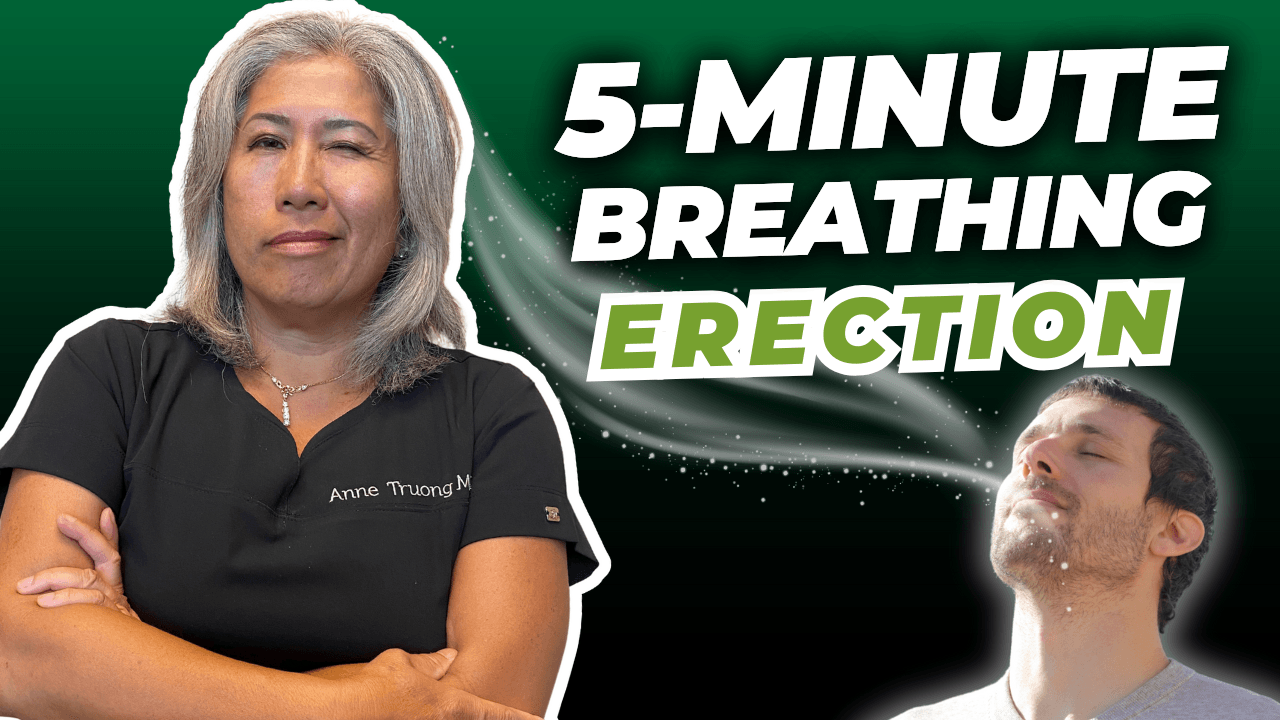Psychological and Physical ED, what are the difference between the two?
If you have been experiencing ED, it is likely that you are questioning yourself "why is this occurring?".
However, it is important to remain calm and recognize that asking this question is a step toward resolving the issue.
There are numerous possible explanations for ED, and in today's episode, I will explain how to differentiate between the physical and psychological causes of ED. Additionally, I will provide advice on how to identify which type one may have.
Dive in and learn the differences between the psychological and physical causes of your ED!
- Episode Video
- Psychological VS Physical Causes of ED
- Difference Between Psychological and Physical ED
- Box Breathing for Psychological ED
- Final Thoughts
Episode Video
Psychological VS Physical Causes of ED
Psychological Causes
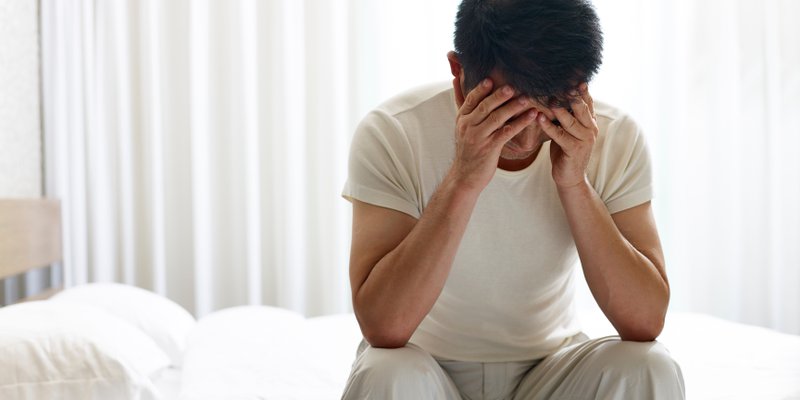
Performance anxiety is more likely to occur when one thinks that sex is always about intercourse.
Enjoy different kinds of sexual activity, such as foreplay, with your partner to experience pleasure and put yourself in the moment. Don't worry about penetration or reactions; just enjoy each other.
Don't let thinking about your penis and whether you can perform well consume you; instead, think about the moment. This could lead to losing your erection since you are not enjoying the moment.
Focusing on pleasure will lead to more pleasure, and it is quite normal for your erection to wax and wane due to sexual play even if you are not fully erect.
Your brain is the largest sexual organ, not the one below your belt. Your five senses (smell, sight, taste, hearing, and touch) start a cascade in your brain of emotions, hormones, and chemicals. This will stimulate the nerves and blood vessels to cause an erection.
When negative emotions and anxious thoughts arise, they can lead to a distraction that may cause psychogenic or psychological ED.
Occasionally, you can still have a morning erection and an erection through masturbation. Your history of anxiety and/or depression may also lead to your loss of intimacy.
Physical Causes
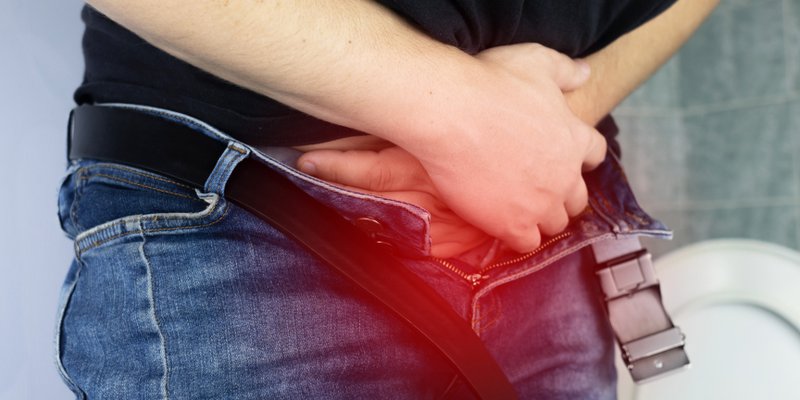
It is important to rule out any potential causes of pain or numbness around the pelvis area. This pain could indicate nerve loss. Similarly, frequent urination (every 15-20 minutes) could be indicative of a prostate issue.
Other potential causes include:
- excessive thirst despite consuming large amounts of fluids, which may indicate diabetes;
- tight, heavy chest pain during physical activity, which may signify a circulation or heart issue;
- and difficulty controlling urination, which could be indicative of nerve damage in the pelvic region.
It is important to ensure that no pelvic injuries, such as those sustained during sports or falls are impacting testicle function.
Many medications have been linked to ED. Medications such as:
- anti-blood pressure drugs
- antihistamines
- antidepressants
- diuretics
- anti-arrhythmic agents
- tranquilizers and sedatives
- sleeping medications
- muscle relaxants for pain relief
- nonsteroidal anti-inflammatory drugs such as naproxen or ibuprofen
- anti-anxiety medications such as Xanax
- stomach ulcer medications
- fertility drugs
- chemotherapy agents
- prostate medications
- painkillers (including opioids and anticonvulsants)
Difference Between Psychological and Physical ED
ED occurs when the connection between your physical and mental health is disrupted, resulting in an inability to perform adequately.
The initiation of an erection begins in your brain. Six systems interact to produce an erection: the brain, emotion, hormones, nerves, blood vessels, and penis.
Psychological ED occurs when your brain can’t send the signal to initiate the sequence of events. This can occur at any point during your sexual activity. It is also why your penis may become flaccid despite an initially positive response.
Physical ED occurs when there is an underlying issue in your body. Any obstruction or restriction of blood flow to your penis may be a cause of it.
Approximately 90% of cases of ED are attributed to physical causes, while the remaining 10% are thought to be psychologically based.
It is also possible for a combination of both physical and psychological factors to contribute to ED.
Box Breathing for Psychological ED
It can be difficult for you to maintain an erection when one is under stress or distracted.
Your brain does not differentiate between a genuine threat and an anxiety experienced in the bedroom. This will result in a shift from arousal to distress and a consequent decrease in blood flow to the penis.
Box breathing is a technique that you can use as an overall relaxation strategy when dealing with psychological ED. You can do box breathing in any comfortable position, either seated or lying down.
- Start by inhaling for a count of four;
- hold your breath for a count of four;
- exhale for a count of four;
- then pause for a count of four before repeating the cycle.
Your goal is to focus on the breath and clear your mind of other thoughts. You can also use visualization techniques to help you relax and stay focused on the breath.
Final Thoughts
Psychological ED is a condition due to psychological issues such as stress, anxiety, depression, relationship problems, performance anxiety, or low self-esteem. It can also be due to lack of communication between partners or feeling disconnected from one's partner.
Physical ED, on the other hand, is due to physical problems that affect the body's ability to achieve or maintain an erection. These physical causes can include conditions like high blood pressure, diabetes, heart disease, hormonal imbalances, and neurological disorders. Other physical causes of ED include certain medications, alcohol abuse, smoking, pelvic trauma or surgery, and obesity.
If you are experiencing ED, it is important to visit a healthcare professional for a full evaluation. Your doctor will ask questions about your medical history and conduct tests to determine the cause of your ED. Depending on the results of these tests, your doctor may recommend lifestyle changes and other treatments.
Additional Resources
Want to regain control of your sex life? Join the Modern Man Club and start your road to full recovery and community.
Reveal the FREE treatment most men ignore that solves thousands of erectile dysfunction cases every year, plus the 5 biggest mistakes you must avoid if you want to say goodbye to your ED. Uncover it all in my free eBook available to download now: The 5 Common Costly Mistakes Men Make When Facing Erectile Dysfunction.
